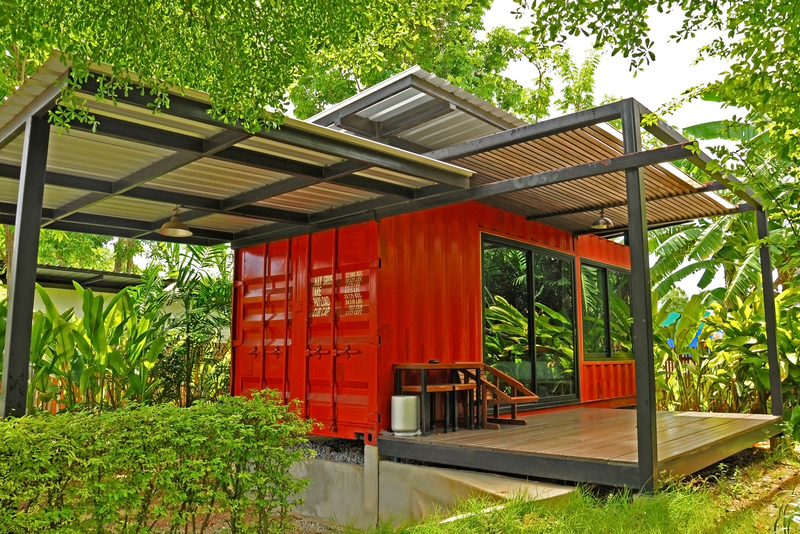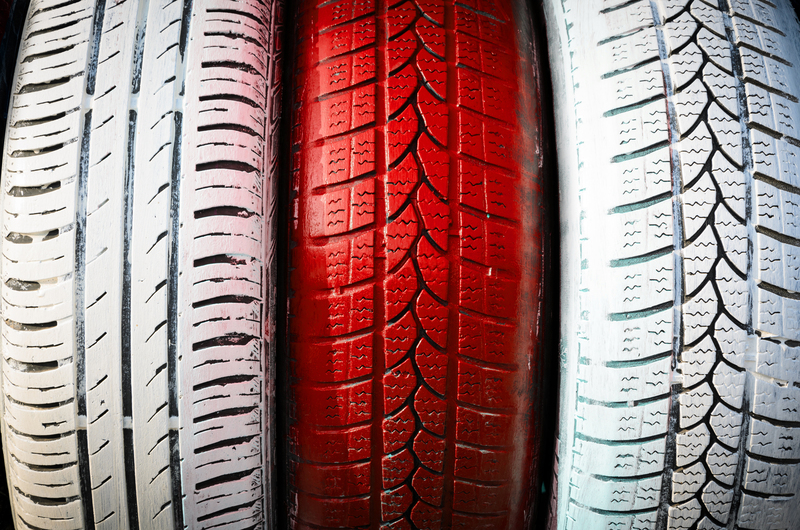Minimizing Environmental Impact with Fridge Disposal Solutions
Posted on 16/05/2024
The refrigerator is an essential appliance in every household, providing us with the convenience of storing our food and keeping it fresh for longer periods. However, when it reaches the end of its life cycle, disposing of it can pose a significant threat to the environment. With millions of fridges being discarded each year, the need for proper disposal solutions has become crucial in minimizing their environmental impact.
In this article, we will explore various options for fridge disposal and their potential impacts on the environment.
Fridge Recycling:
Recycling is one of the most effective ways to minimize the environmental impact of old refrigerators. The process involves disassembling the fridge and separating its components into different categories such as metal, plastic, and refrigerant gas. These materials are then reused in manufacturing new products, reducing the need for extracting raw materials from the earth.
One of the main advantages of fridge recycling is that it prevents harmful materials from ending up in landfills or being incinerated. According to the Environmental Protection Agency (EPA), refrigerant gases such as chlorofluorocarbons (CFCs) and hydrochlorofluorocarbons (HCFCs) contribute significantly to ozone depletion and climate change. By recycling fridges, these gases can be safely disposed of or even converted into energy.

Landfill Disposal:
Unfortunately, not all discarded fridges end up being recycled. Many still end up in landfills where they can have long-lasting effects on the environment. When left to decompose, refrigerators release gases like methane which contribute to air pollution and greenhouse gas emissions. Additionally, the toxic chemicals present in fridges can seep into groundwater and contaminate soil, posing a threat to both human health and wildlife.
To avoid these negative impacts of landfill disposal, some regions have put regulations in place that prohibit fridges from being dumped in landfills. However, without proper enforcement of these regulations, many fridges still end up in landfills, causing harm to the environment.

Fridge Donation:
Another option for disposing of an old fridge is by donating it to someone in need. Many non-profit organizations and charities accept working fridges and distribute them to families or individuals who cannot afford a new one. This not only reduces waste but also provides a practical solution for those in need.
However, before donating your fridge, make sure it is in good working condition. Otherwise, it may cause more harm than good if it breaks down shortly after being donated. Also, ensure that you are donating to a reputable organization that follows proper disposal measures for fridges that cannot be reused.
Disposal Tips and Takeaways:
- When disposing of your fridge, always check with your local waste management authority for guidelines and regulations.
- If possible, opt for recycling as it is the most environmentally friendly disposal solution.
- Make sure to safely remove and dispose of any hazardous materials from your fridge before recycling or landfill disposal.
- Consider donating your fridge if it is still in good working condition.
- Always choose responsible organizations for donation or recycling.
In conclusion, refrigerators have become an essential part of our daily lives, but their disposal can have significant environmental impacts. By choosing responsible disposal solutions like recycling or donation, we can minimize these harmful effects and contribute to a more sustainable future. However, proper enforcement of regulations and individual responsibility are crucial in ensuring these solutions are implemented effectively.
Pros:
- Recycling fridges helps reduce the need for extracting raw materials from the earth.
- It prevents harmful substances from ending up in landfills or being released into the atmosphere.
- Donation provides families in need with a practical solution while reducing waste.
Cons:
- Improper disposal of fridges can lead to air pollution, water contamination, and greenhouse gas emissions.
- Landfilling fridges can have long-lasting effects on the environment if not regulated properly.
- Donating non-working fridges without proper disposal of hazardous materials can do more harm than good.
Tips:
- Always dispose of your fridge responsibly by checking local guidelines and regulations.
- Choose recycling or donation as the preferred disposal methods.
- Safely remove hazardous materials before disposal.
- Opt for responsible organizations for donation or recycling.
Takeaways:
- Recycling is the most effective way to minimize the environmental impact of old refrigerators.
- Landfilling fridges can have harmful consequences if not properly regulated.
- Donation provides a practical solution while reducing waste but must be done responsibly.
In conclusion, by choosing responsible disposal solutions, we can minimize the environmental impact of old fridges and contribute to a greener future. Remember to always follow proper guidelines and regulations, opt for recycling or donation, and make informed decisions when disposing of your fridge. Together, we can work towards a sustainable and eco-friendly society.
Latest Posts
Eco-Friendly Home Organization
Dispose with Care: Responsible Strategies for Removing Waste
Sustainable Solutions for Commercial Waste
Sustainable Solutions: A Closer Look at London's Waste Reduction Efforts

 020 3744 5712
020 3744 5712










